Many people go on diets or exercise regimes in January and typically people start with lots of enthusiasm but then they quickly give up. Shaping up your finances is a similar challenge – it is about making this a habit and continuing throughout the year.
Getting help is important, whether that is professional financial advice or just a friend or family member who can hold you to account. Making time to review how you’re doing and reflect on your successes (perhaps a reward for achieving a goal) could also help you.
Here we set out eight resolutions that could help to improve your financial health.
1. Get a handle on your budget
If money is tight then getting a handle on your budget is vital. If you’re not the sort of person to use a spreadsheet then you could simply go through your bank account, collect receipts or note expenses in a notebook or app.
Reflect on this on a daily, weekly and monthly basis. For those with plenty of money this can be even more revealing as many people who are comfortably off tell me they don’t know where their money goes. But if you want to achieve big financial goals then identifying day-to-day spending and seeing how you could manage your money better could be a good incentive to save. Those savings could then be put towards a bigger long-term goal – whether that is luxury holiday or into your pension.
2. Tidy up your finances
Over time it is easy to accumulate lots of savings accounts and credit cards: perhaps you took them out to take advantage of a good interest rate, or save for a particular purpose, or you might simply have lots of different credit cards.
Not only does this often result in lots of post and admin, it could leave you more vulnerable to fraud. Take stock of exactly what you’ve got and what you need, and look to close those accounts and cards you don’t use.
3. Check your credit score
This is vital when you want to take out more credit, such as a loan or mortgage but it can also affect some contracts such as mobile phones. Mistakes can happen so it is a good idea to check it to make sure it is accurate.
4. Make a debt repayment plan
It makes sense to tackle debts with the highest interest rates first. It may be worth considering trying to consolidate loans or credit cards and look for low or 0% balances.
5. Boost your cash savings
Aiming to keep three to six months of spending money in cash as an emergency fund is a good guideline. However, the level you keep will really depend on your personal circumstances. If you are self-employed or running your own company and have dependents then you may want a larger amount of cash as a safety net than if you are single and in secure employment.
6. Consider investing once cash savings are in place
Due to inflation, the value of cash savings will erode over time. Once you’ve got your cash savings in place, you may want to think about investing for the chance to obtain higher returns than those offered by cash, although investing comes with the risk that you may not get back the originally amount invested and the value of your money is subject to fluctuations.
There are lots of ways to start investing. If you want professional advice, you could seek a regulated financial adviser who will work with you to recommend investments appropriate to your risk profile and time frames.
7. Maximise your pension contributions
If you are in a company pension scheme, consider if you are making the right level of contributions. Many employers offer generous matched-funding of contributions which is like “free” additional money from your employer. If you can afford to do so, you could consider increasing your contribution to the maximum that is matched by your employer. This is a great way to save as you are doubling your money AND you get tax relief on your contribution.
8. Get the most out of any employee benefits
Most employers have a window where you can make changes to your benefit choices, often this is in the spring. Check what date yours changes and make time to review what is on offer and what works for you.
Claire Walsh
Personal Finance Director – Schroders
